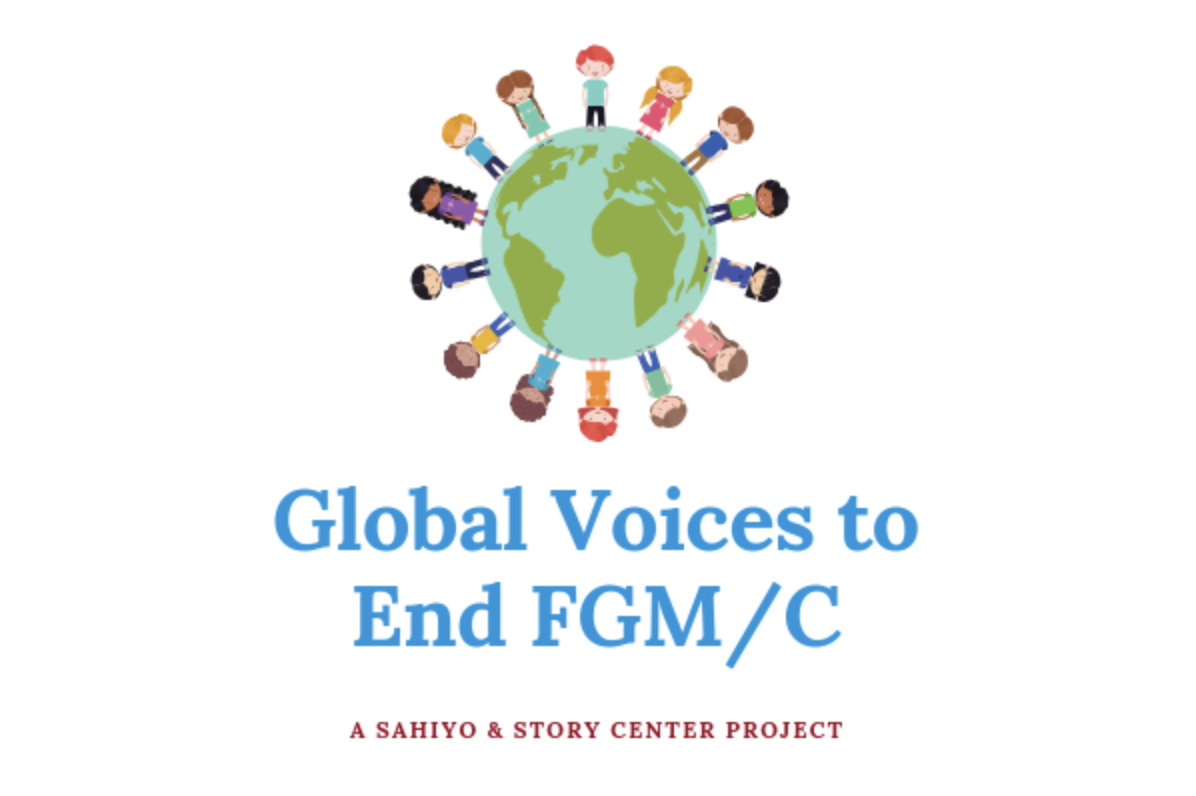
Struggle, belonging, and community: Sahiyo and StoryCenter hosted a Voices to End FGM/C screening
By Sandra Yu
On August 19th, 2021, Sahiyo and StoryCenter co-hosted a film screening and panel discussion to highlight voices from the Voices to End FGM/C Digital Storytelling workshop. The event showcased eleven new digital stories, created virtually by a global group of advocates and survivors of female genital mutilation/cutting (FGM/C), during January and February. Lola’s transformation of shame to acceptance of her story is stunning to hear.
Mariya Taher of Sahiyo and Amy Hill of StoryCenter, two facilitators of the annual workshop, led an audience Q&A and presented storytelling methodology, while two guest speakers, Nafisa (pseudonym) and Lola Ibrahim (Yoruba, English), shared their experiences with the digital storytelling workshop itself. Of the eleven stories shown, three were premiered at the event and had not been released to the public yet. The full collection can be found here, with stories continuing to be released.
“I feel liberated” Nafisa said. “I feel lighter, and I feel scared all at once. I wanted to talk about this work and khatna and the challenges that are faced in the community for many years.
The 2021 Voices digital collection succeeded tremendously in capturing the core concept of oppressive social norms. Almost reminiscent of short vignettes, each digital story actualized the abstract concept of social norms into concrete experiences. The stories stood individually as personal narratives of struggle, belonging, and community. Comparatively, this collection presented the larger struggles of individuals and collectives in battling gender-based violence.
In response, audience members engaged deeply with each story, typing out messages with empathy and gratitude to each storyteller for taking up the challenge of telling their stories. It was uplifting to see how the digital stories could elicit such reactions of allyship and community-building, even within a Zoom chat.
My personal highlight from the event was hearing Nafisa and Lola reflect on their experiences of storytelling and tackle the nuances of FGM/C in their respective communities. The digital storytelling workshop was evidently transformative, in similar and different ways for each participant.
“Sharing my shame can make a difference,” Lola said. “You understand that. Because you own that story. And you’re able to tell the story. So you’re no longer ashamed.”
Lola’s transformation of shame to acceptance of her story is stunning to hear. Through the workshop, she found a close-knit community to listen and empathize with her story. By producing a digital story, she now engages a global community to respond to her story.
“I felt powerless because in the world that we live in, when you’re anonymous, you feel like your voice is taken away,” said Nafisa. “You don’t have an identity, but I think sharing my story has allowed me to have a voice or has created a space for me. It has put the power back in my hands.”
Nafisa’s story is equally hopeful. Despite her anonymity, Nafisa proudly holds ownership of her story and continues to advocate against FGM/C.
Sahiyo is excited to announce the upcoming 2022 Voices to End FGM/C digital storytelling workshop, as part of their continued partnership with StoryCenter. This workshop is open to all individuals who have a story to share about how they, or someone they know, have been impacted by FGC, and will be held virtually.
For those interested in taking part, please fill out the application by Friday, December 11, 2021.
Read more about the 2022 workshop and/or donate to support the Voices project.